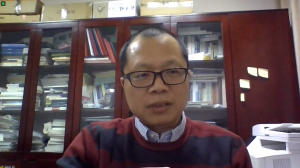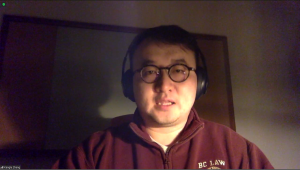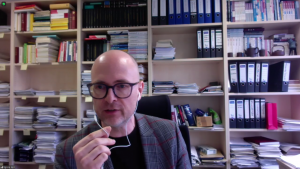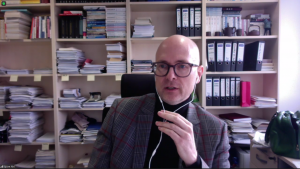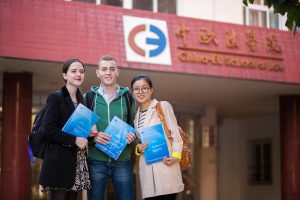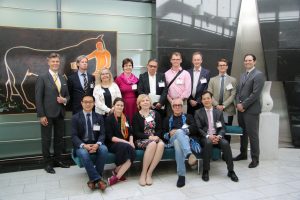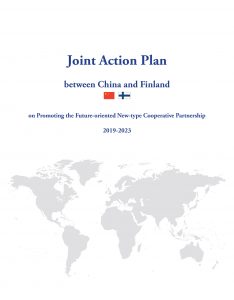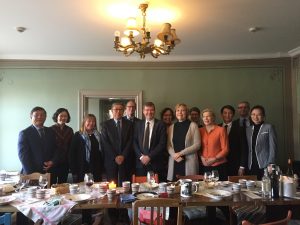
On Tuesday 20 April 2021, Professor Jason Chuah from the City University of London gave a guest lecture on the topic of ‘An Inquiry into the Continuing Development of Maritime Law in the PRC’ at the Finnish China Law Center. The lecture was chaired and commented on by Ellen J. Eftestøl, Professor of Civil and Commercial Law at the University of Helsinki.

Professor Chuah opened the lecture by giving an overview of the current status of maritime law and jurisprudence in the PRC. Since the jurisdiction of maritime courts was enlarged in 2016, there has been a generally high number of maritime court cases: over 95.000 between 2015 and 2017. More than 6.000 of these cases are foreign-related, meaning that in a lot of them, the parties choose an applicable law that is more advantageous to them than the Chinese. While the PRC courts generally respect the parties’ choice of applicable law, some courts use Chinese law to fill in legal gaps, which is conflicting with international principles. However, the Supreme People’s Court has issued a new guideline in 2020 that strongly advises courts not to fill in gaps with PRC law when dealing with pandemic-related cases. Furthermore, it is sometimes unclear how many countries are involved in one single contract. If the chosen law has no sufficient connection to the case, PRC courts may argue that the clause is unenforceable, unless it is explicitly exclusive. While in EU countries, the exclusivity of such clauses is presumed, that is not the case in the PRC, which sometimes leads to disputes between the parties and the Chinese courts.
Professor Chuah continued with a short comparison of the judicial systems in the PRC and the UK. Whereas in the UK, the guiding precedent doctrine binds judges to follow court decisions made by higher courts, the PRC has no such common law system. However, in 2020, China has issued new guidance that advises courts to apply principles and rules uniformly and follow previous court decisions to prevent conflicting decisions within the PRC. In 2000, the legislation law came into force, which is intended to help drive the modernization of PRC laws forward. It states that laws shall be made in compliance with the basic principles laid down in the constitution, and encourages a policy of „opening to the outside world“, which clearly shows China’s efforts to connect and align its judiciary with other countries.
Professor Chuah closed with a case study on the „bill of lading“, which is a document issued by a carrier of goods and that is the basis for ensuring that exporters receive payment and importers receive the merchandise. Usually, the bill, after it was given to the exporter, gets transferred to the buyer, who is often located in a foreign country. This procedure raises two main problems. The first one is the question of the „original“ document. In line with many other technological advances in the PRC, the bill of lading is nowadays often an electronic document instead of a paper. However, the Chinese maritime law is still very paper-oriented and does not adjust fast enough to these new devices. Professor Chuah emphasized the need to revise the PRC maritime law, starting with redefining the term of originality. The second challenge with the bill of lading is the right to sue. It is common practice internationally that with the transfer of the bill, one gives up their right to sue the carrier. However, some PRC courts have decided the opposite way. Professor Chuah explains this with the fact that the persons transferring the bill of lading are mostly exporters. China as an exporting country wants to protect its exporters and local businesses and therefore interprets the bill transfer differently in order to preserve the exporters’ right to sue. In conclusion, it is noticeable that the PRC has made enormous progress in terms of aligning its jurisprudence with international standards, even though it is not a party of the international conventions on maritime law. However, the PRC courts sometimes interpret international rules differently, which is mostly due to the different political and legal history as well as the fact that Chinese private rules are often hard to combine with international methods. It will be interesting to see if China will sign up to the Rotterdam rules and what impact that would have, since the rules are intended to be much more recognizing of technological advances and current shipping practices.
This blog post was written the Center’s intern, Johanna Fähnrich.


